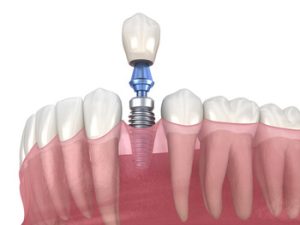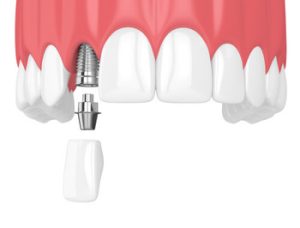Regarding dental implants, the global landscape offers myriad options, with India often touted as a leading destination due to its affordability and increasing proficiency in dental care. Yet, while the allure of lower dental implant costs in India may tempt many, the advantages of receiving dental implant treatment in Australia far outweigh the perceived savings. This blog delves into the multifaceted considerations of dental implant procedures, examining why Australia should be your chosen destination for this crucial dental surgery.
Understanding Dental Implants
Dental implants are sophisticated, surgically embedded titanium posts that serve as artificial roots for prosthetic teeth. These implants mimic natural teeth in function and appearance, offering a permanent solution for tooth loss. The dental implant procedure typically involves placing the implant screw into the jaw bone, followed by a healing period where the bone integrates with the implant (osseointegration). Once this bond is established, a dental crown is affixed, resulting in a fully functional and aesthetically pleasing replacement tooth.
In addition to single-tooth replacements, dental implants can support dentures, providing a more reliable and comfortable solution known as implant-supported dentures.
Dental Implants in India: A Glimpse
India has become a favourable destination for dental tourism, attracting individuals seeking affordable dental implants. The cost of dental implants in India is markedly lower than in many Western countries, including Australia. This affordability is primarily due to lower living costs, reduced dental clinic operational costs, and competitive pricing strategies. Dental tourists are increasingly attracted to India, drawn by the promise of high-quality dental care at a fraction of the cost. However, many are unaware of the potential risks of seeking dental treatments overseas.
The Hidden Costs of Dental Implants Overseas
Despite the appealing dental implant costs in India, hidden risks and potential downsides must be considered. Any surgical or invasive procedure carries risks, and it is crucial to seek a second opinion from a qualified health practitioner before proceeding with dental implant procedures. Dental implant surgery is an intricate procedure that requires precision, expertise, and stringent post-operative care. Opting for dental implants overseas can expose patients to several risks, including:
Quality and Safety Concerns:

Not all dental clinics in India adhere to the rigorous standards of hygiene and safety required for surgical procedures. This can increase the risk of infections, implant failure, and other complications.
Qualifications and Expertise: Ensuring the dentist is an appropriately qualified health practitioner is paramount. While India boasts many skilled dentists, the variability in training and certification standards can be a concern.
Post-Operative Care: Successful dental implant treatment necessitates diligent follow-up care. Seeking dental implants overseas can complicate post-operative care, with limited access to your dentist once you return home.
Legal and Ethical Issues: Navigating a foreign country’s legal and ethical landscape can be challenging, particularly if complications arise and legal recourse is needed.
The Australian Advantage: Excellence in Dental Implant Treatments
Choosing dental implants in Australia offers numerous advantages that ensure a safer, more reliable, and ultimately more satisfying dental implant treatment experience. Here’s why Australia stands out:
High Standards of Care
Australia’s healthcare system is renowned for its stringent standards and rigorous regulations, ensuring that dental clinics operate under the highest levels of hygiene and safety. The Australian Dental Association (ADA) oversees the accreditation of dental practitioners and facilities, guaranteeing that patients receive care from exceptionally skilled and experienced professionals.
Expertise and Experience
Australian dentists undergo extensive training and continuous professional development. This dedication to excellence results in a higher success rate for dental implant procedures. Patients benefit from the knowledge and proficiency of practitioners who are adept in the latest techniques and technologies.
Comprehensive Treatment Plans
In Australia, the dental implant process begins with an initial consultation, where a detailed assessment of your oral health condition, medical history, and specific needs is conducted. This personalised approach guarantees that the dental implant treatment plan is customised to your unique requirements, increasing the likelihood of a successful outcome.
State-of-the-Art Facilities
Australian dental clinics are equipped with cutting-edge technology and state-of-the-art facilities, enabling precise dental treatments and reducing the risk of complications. Advanced imaging techniques, such as 3D cone beam CT scans, allow for accurate mapping of the jaw bone, ensuring optimal implant positioning.
Seamless Post-Operative Care
Post-operative care is a critical component of successful dental implant treatment. In Australia, patients benefit from continuous, accessible follow-up care, with their dentist monitoring the healing process and promptly addressing any issues. This seamless care continuum enhances the overall success and longevity of dental implants.
Cost Considerations: Beyond the Price Tag
While dental implant costs in India are undeniably lower, it is essential to consider the total cost of treatment, which encompasses more than just the initial procedure. Travel expenses, accommodation, and potential follow-up visits can add up, eroding the initial savings.
Moreover, the potential cost of complications arising from substandard care or insufficient follow-up can be substantial. In contrast, investing in high-quality dental implant treatment in Australia can offer better value for money in the long term, ensuring durable and reliable outcomes.
The Importance of Comprehensive Care
Dental implants are more than just a surgical or invasive procedure; they are a long-term investment in oral health and quality of life. Comprehensive care, encompassing pre-operative planning, meticulous dental implant procedures, and diligent post-operative care, is crucial for achieving the best results.
In Australia, this holistic approach is the standard, with dental professionals dedicated to providing a full spectrum of care that addresses all aspects of the dental implant journey. This commitment to comprehensive care significantly reduces the risk of implant failure and enhances the overall patient experience.
Dental Tourism vs. Local Expertise
Dental tourism, particularly for dental implants in India, is driven by the quest for affordable dental treatments. However, it is essential to weigh the benefits of local expertise against the allure of lower costs abroad. Here’s a closer look at the key differences:
Local Expertise
- Quality Assurance: Local dental clinics in Australia are subject to stringent quality control measures, ensuring high standards of care.
- Continuity of Care: Access to continuous, personalised care from your dentist enhances the success of dental implant procedures.
- Legal Protections: Patients in Australia are protected by robust healthcare regulations, providing recourse in case of any issues or malpractise.
Dental Tourism
- Cost Savings: Dental tourism in India offers notable cost savings, making it an appealing choice for budget-conscious patients, but it may come with a compromise in quality.
- Vacation Packages: Many dental tourism packages combine dental treatments with vacation opportunities, adding an element of leisure to the experience.
- Limited Follow-Up: Post-operative care can be challenging, with limited access to your dentist upon returning home, potentially compromising the outcome.
The Role of Advanced Techniques and Materials
The success of dental implant procedures is heavily influenced by the techniques and materials used. Australian dental clinics lead the way in innovation, utilising advanced techniques and high-quality materials that ensure superior results.
Extra Steps: Understanding Bone Grafting and Sinus Lifts
 In cases where jaw bone density is insufficient to support implants, bone grafting and sinus lifts may be necessary. These advanced procedures enhance the bone structure, providing a stable foundation for dental implants. Australian dentists are adept at performing these intricate procedures, ensuring optimal dental implant procedures and longevity.
In cases where jaw bone density is insufficient to support implants, bone grafting and sinus lifts may be necessary. These advanced procedures enhance the bone structure, providing a stable foundation for dental implants. Australian dentists are adept at performing these intricate procedures, ensuring optimal dental implant procedures and longevity.
The Dental Implant Procedure: A Step-by-Step Overview
Dental implants offer a lifetime solution to tooth loss, mimicking the function and appearance of natural teeth. Dental implant treatment is a multi-step process that involves careful planning, surgical precision, and post-operative care. Here’s an overview of each stage of the dental implant procedure:
Initial Consultation and Assessment
- Medical and Dental History: Review of your medical and dental history.
- Oral Examination: Comprehensive examination of your gums, teeth, and jawbone.
- Diagnostic Imaging: X-rays and 3D cone beam CT scans evaluate bone density.
- Treatment Planning: Development of a personalised treatment plan for the dental implant procedure.
Preparatory Procedures
- Tooth Extraction: Removal of damaged or decayed teeth as a preparatory step for the dental implant procedure.
- Bone Grafting: Augmentation of bone density if necessary.
- Sinus Lift: Raising the sinus floor for upper jaw implants if needed.
Implant Placement Surgery
- Anaesthesia: Administration of local anaesthesia or sedation for the dental implant procedure.
- Incision and Drilling: Creating a precise hole in the bone.
- Implant Placement: Insertion of the titanium implant post.
- Healing Cap Placement: Protecting the implant with a healing cap.
Osseointegration Period
- Healing: The dental implant procedure involves a period where the implant fuses with the bone over several months, ensuring stability.
Abutment Placement
- Reopening the Gum: Exposing the implant as part of the dental implant procedure.
- Attaching the Abutment: Connecting the abutment to the implant.
- Gum Healing: Suturing the gum tissue around the abutment.
Final Restoration
- Impressions: Creating a custom-fit crown as part of the dental implant procedure.
- Crown Fabrication: Crafting the crown in a dental laboratory.
- Crown Placement: Affixing the crown to the abutment.
Post-Operative Care and Maintenance
- Oral Hygiene: Maintaining a persistent oral hygiene routine after the dental implant procedure.
- Regular Dental Visits: Scheduling check-ups and professional cleanings.
- Avoiding Harmful Habits: Steering clear of smoking and chewing hard foods.
Advantages of Dental Implants
- Permanent Solution: The dental implant procedure offers long-lasting and often lifetime durability.
- Improved Functionality: Restores full chewing power.
- Aesthetic Appeal: Natural-looking and feeling replacement teeth.
- Preservation of Jaw Bone: Maintains bone density.
- Protection of Adjacent Teeth: Does not alter surrounding teeth.
Embracing a Permanent Solution
Choosing the dental implant procedure over traditional dentures offers a multitude of benefits. Dental implants are a permanent solution to tooth loss, mimicking the function and appearance of natural teeth. They offer improved stability, eliminating the discomfort and inconvenience of removable dentures.
Moreover, dental implants help preserve jaw bone density, preventing the bone loss often accompanies missing teeth. This preservation of bone structure maintains the integrity of the facial profile, contributing to a more youthful appearance.
FAQs about Dental Implants
Q1: How long does the dental implant procedure take from start to finish?
A1: The entire process can take several months, usually between 3 to 6 months, depending on the need for additional preparatory procedures like bone grafting and the healing time required for osseointegration.
Q2: Is the dental implant procedure painful?
A2: The procedure is performed under local anaesthesia or sedation, so patients typically experience minimal discomfort during the surgery. Some post-operative pain and swelling are normal but manageable with prescribed medications.
Q3: Can anyone get dental implants?
A3: Most good general and oral health people are candidates for dental implants. However, those with insufficient bone density, uncontrolled diabetes, or other significant health issues may require additional evaluation and treatment.
Q4: What is the success rate of dental implants?
A4: Dental implants have a high success rate, typically around 95-98%, especially when performed by experienced professionals and with proper aftercare.
Q5: Does insurance cover dental implants?
A5: Coverage for dental implants varies by insurance policy. Some insurance plans may cover part of the cost, especially if the implants are medically necessary.
Q6: How do I care for my dental implants?
A6: Maintain good oral hygiene by brushing and flossing regularly, attend routine dental check-ups, and avoid habits that cause damage to your implants, such as smoking and chewing hard foods.
Q7: What materials are dental implants made from?
A7: Dental implants are typically made from titanium, a biocompatible material that integrates well with bone. The crowns are usually made from porcelain or ceramic for a natural look.
Q8: Can dental implants fail?
A8: While rare, implant failure can occur due to infection, insufficient bone integration, or improper placement. Regular dental visits and proper oral hygiene can help minimise the risk.
Q9: Are there any dietary restrictions after getting dental implants?
A9: Initially, you should avoid hard, sticky, or chewy foods until the implant site has healed. Once healed, implants function like natural teeth with no dietary restrictions.
Q10: How do dental implants compare to dentures?
A10: Unlike removable dentures, dental implants are a permanent solution that provides greater stability, functionality, and aesthetic appeal. They also help preserve jaw bone density and do not affect adjacent teeth.
Q11: What should I expect during recovery?
A11: Recovery involves swelling, bruising, and minor bleeding, typically subside within a week. Full integration of the implant with the bone takes a few months.
Q12: Can dental implants be done in a single visit?
A12: While some advancements allow for same-day implants, traditional dental implant procedures typically require multiple visits over several months to ensure proper healing and integration.
Final Thoughts: Why Australia is Your Best Choice for Dental Implants
 Dental implants represent a significant investment in your oral health and overall well-being. While dental tourism in India offers an affordable alternative, the advantages of receiving dental implant procedures in Australia are compelling. From the assurance of high-quality care and expertise to the benefits of comprehensive, continuous post-operative care, Australia stands out as the superior choice for dental implant procedures.
Dental implants represent a significant investment in your oral health and overall well-being. While dental tourism in India offers an affordable alternative, the advantages of receiving dental implant procedures in Australia are compelling. From the assurance of high-quality care and expertise to the benefits of comprehensive, continuous post-operative care, Australia stands out as the superior choice for dental implant procedures.
By choosing dental implants in Australia, you are investing in a permanent, reliable, and aesthetically pleasing solution to tooth loss, ensuring optimal oral health and quality of life for years to come. For more information or to schedule a consultation, contact Beyond Infinity Dental today. Call us at (02) 8806 3799.
Note: Any surgical or invasive procedure carries risks. Before proceeding, you should seek a second opinion from an appropriately qualified health practitioner.
References:
Dental Tourism Explained. Dental Health. Retrieved from https://www.dentalhealth.org/dental-tourism-explained
Dental Implant Problems. Healthline. Retrieved from https://www.healthline.com/health/dental-implant-problems
Dental Implants: What You Should Know. FDA. Retrieved from https://www.fda.gov/medical-devices/dental-devices/dental-implants-what-you-should-know
Patient Rights. National Dental Care. Retrieved from https://www.nationaldentalcare.com.au/patient-rights
ADA Guidelines for Infection Control. Australian Dental Association. Retrieved from https://ada.org.au/getmedia/e99d888d-c0ab-4be1-b889-85e5193fd7e7/ADA_Guidelines_Infection_Control_Guidelines.pdf









